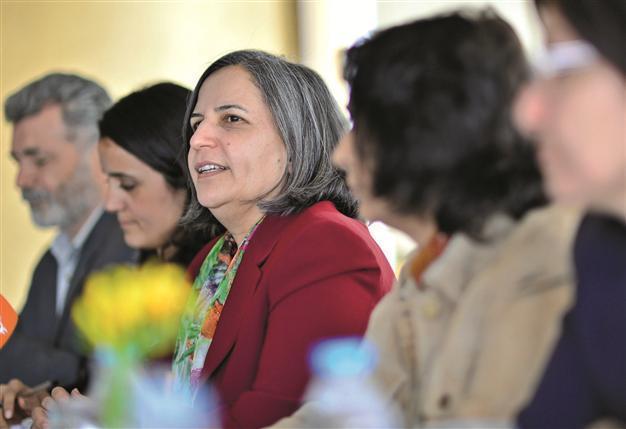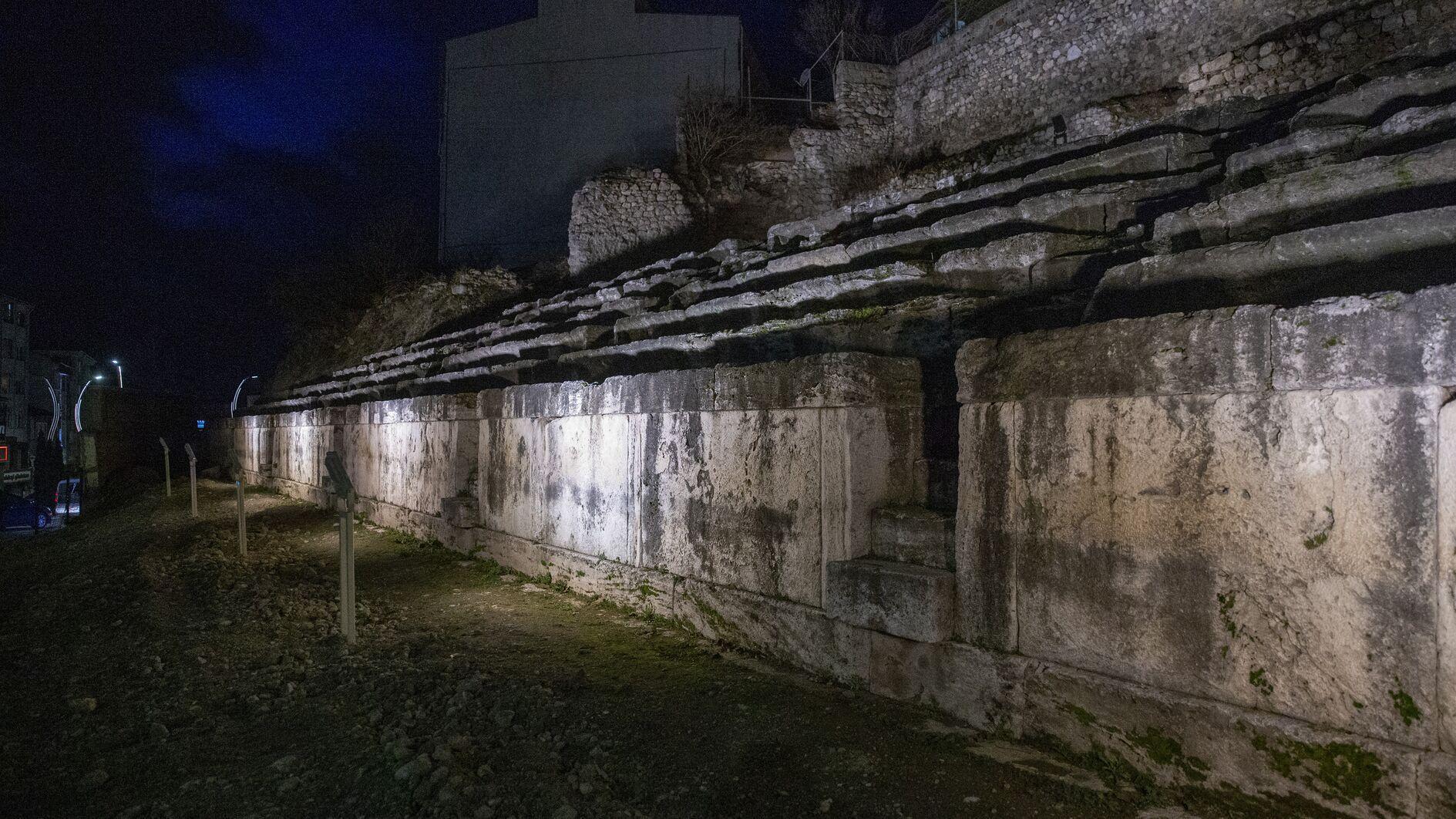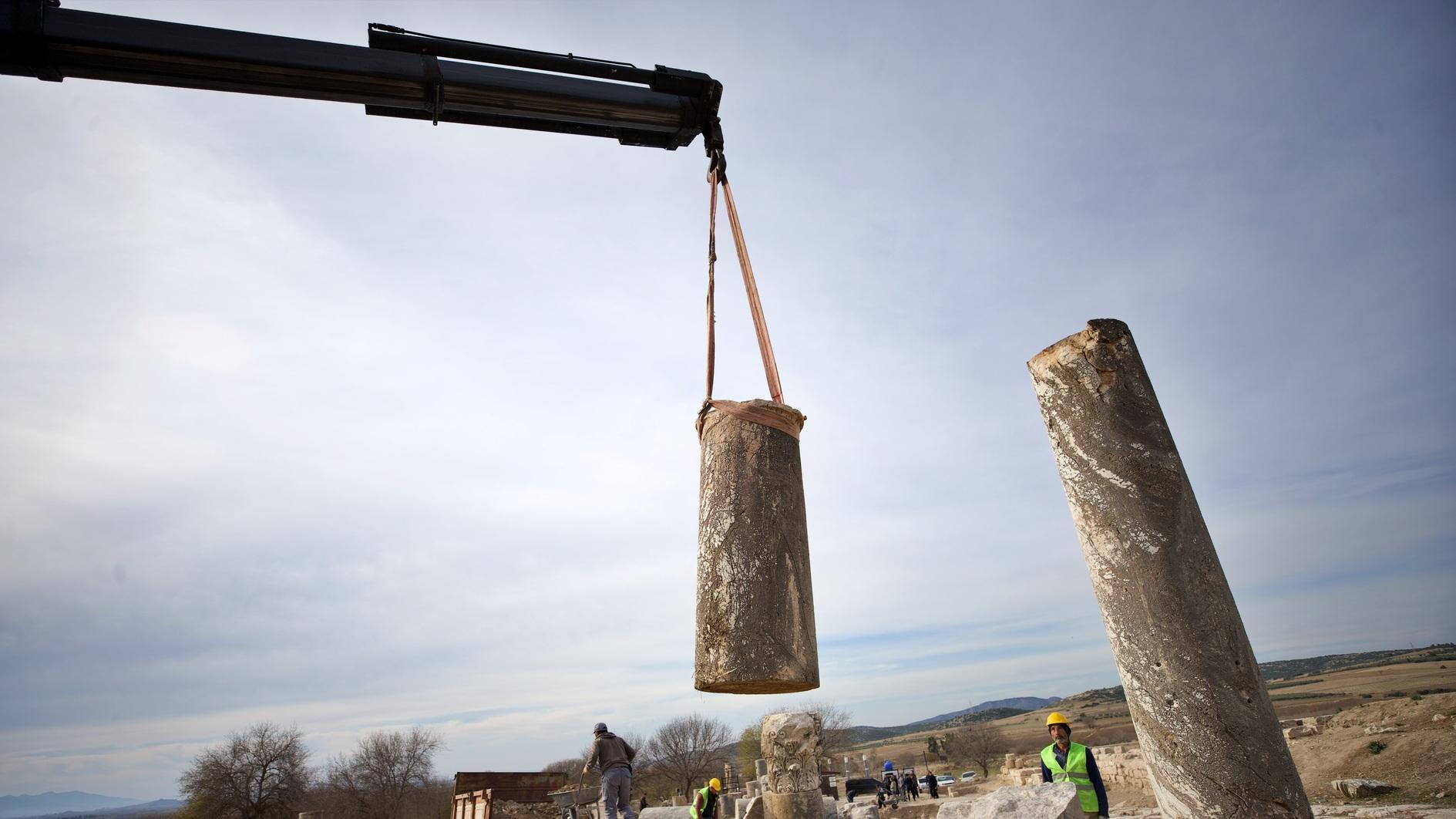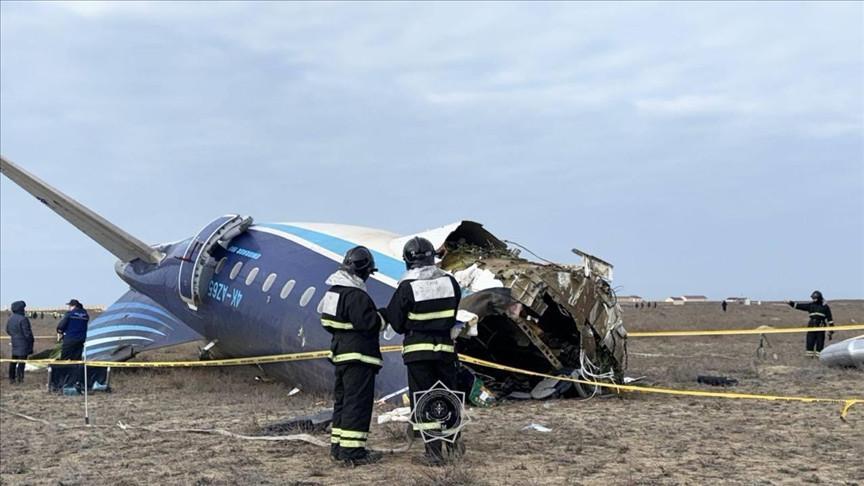Öcalan’s call will mean ‘more than a cease-fire’, BDP co-chair Kışanak says
ISTANBUL - Hürriyet Daily News

BDP co-chair Kışanak says the call for freedom for Öcalan at Nevruz should not be understood as a precondition.
The call from the jailed leader of the outlawed Kurdistan Workers’ Party (PKK), Abdullah Öcalan, on the upcoming Nevruz holiday will be more than just a call for a cease-fire, and will also be a sign that the process should be kept going as agreed, Peace and Democracy Party (BDP) co-chair Gültan Kışanak told reporters in Istanbul yesterday.“The public is focused on the magical word of cease-fire. I can say that if there is a call [from Öcalan on Nevruz] it will certainly mean more than just a cease-fire. I hope that such a consensus is agreed on and that a very powerful call comes at Nevruz. I want to emphasize once again that the call at Nevruz will not only be a cease-fire call,” said Kışanak.
She added that a cease-fire could prevent deaths if it was announced by both sides in the conflict. “Clashes do not stop with one side [declaring a cease-fire]. It will definitely be a two sided [cease-fire], though I don’t know what its method will be,” she said.
Speaking about this year’s Nevruz slogan, declared by the BDP to be “Freedom for Öcalan, Status for Kurds,” Kışanak said the call for freedom to Öcalan should not be understood as a precondition in the peace process. However, she added that the process itself would show when freedom for Öcalan would come.
Responses to Öcalan’s letters ready: Kışanak
Öcalan wrote and had delivered three letters addressed to the BDP, the Executive Council of the Kurdistan Communities Union (KCK), the alleged urban wing of the PKK based in Kandil, and the KCK’s Europe branch.
Kışanak said the responses to Öcalan’s letters were now ready, but added that the BDP did not know the content of the response letters from Europe and Kandil. It is expected that a third visiting delegation will deliver these responses to Öcalan in a few days, Kışanak said, adding their impressions indicated that both the European wing and Kandil were giving full support to Öcalan.
Öcalan wrote the letters in an effort to lay out certain conditions for the voluntary disarmament of the PKK. Responding to a question as to whether direct talks with Kandil and Öcalan would be possible, Kışanak said this would be a step that eased the process.
“The KCK has such a demand. Öcalan has an expectation to meet not only with Kandil but also with broader circles,” said Kışanak adding that such direct contact would be possible in the upcoming process.
The negotiation process of finding a peaceful solution to the Kurdish issue must be institutionalized, Kışanak also stressed.
‘Commissions needed’
Negotiation commissions must be established and regulations must be made in Parliament, otherwise there is a danger that the current peace efforts might be legally regarded as a crime in the future, she said. The commissions would included representatives from both sides, as well as neutral people, she said. More broadly, Kışanak defined the negotiations as a process through which the “government’s and state’s priority of PKK disarmament” and “the Kurds’ priority of having constitutional rights” would come true.
The BDP’s co-chair also defined the Kurdish people’s definition of a solution as a truly democratic republic, where fundamental rights were secured in the Constitution in a pluralistic structure, adding that she personally felt optimistic about developments. k HDN
BDP Demands US to make peace efforts
ISTANBUL - Hürriyet Daily News
The Peace and Democracy Party (BDP) has called on the United States to contribute to the peace process in the Kurdish issue.
“[The U.S.] has given intelligence and military technology support to Turkey in its fight against the [outlawed Kurdistan Workers’ Party] PKK. I think much more than this support can be given for the peace,” BDP co-chair Gültan Kışanak told reporters. “We are expecting [the U.S.] to mobilize its capabilities for the peace process in the future.”
Kışanak also called on European countries to make an effort to solve the murder of three Kurdish female activists in Paris. Sakine Cansız, one of the founding members of the PKK; Fidan Doğan, the Paris representative of the Brussels-based Kurdistan National Congress (KNK); and activist Leyla Söylemez were murdered on Jan. 9.
















